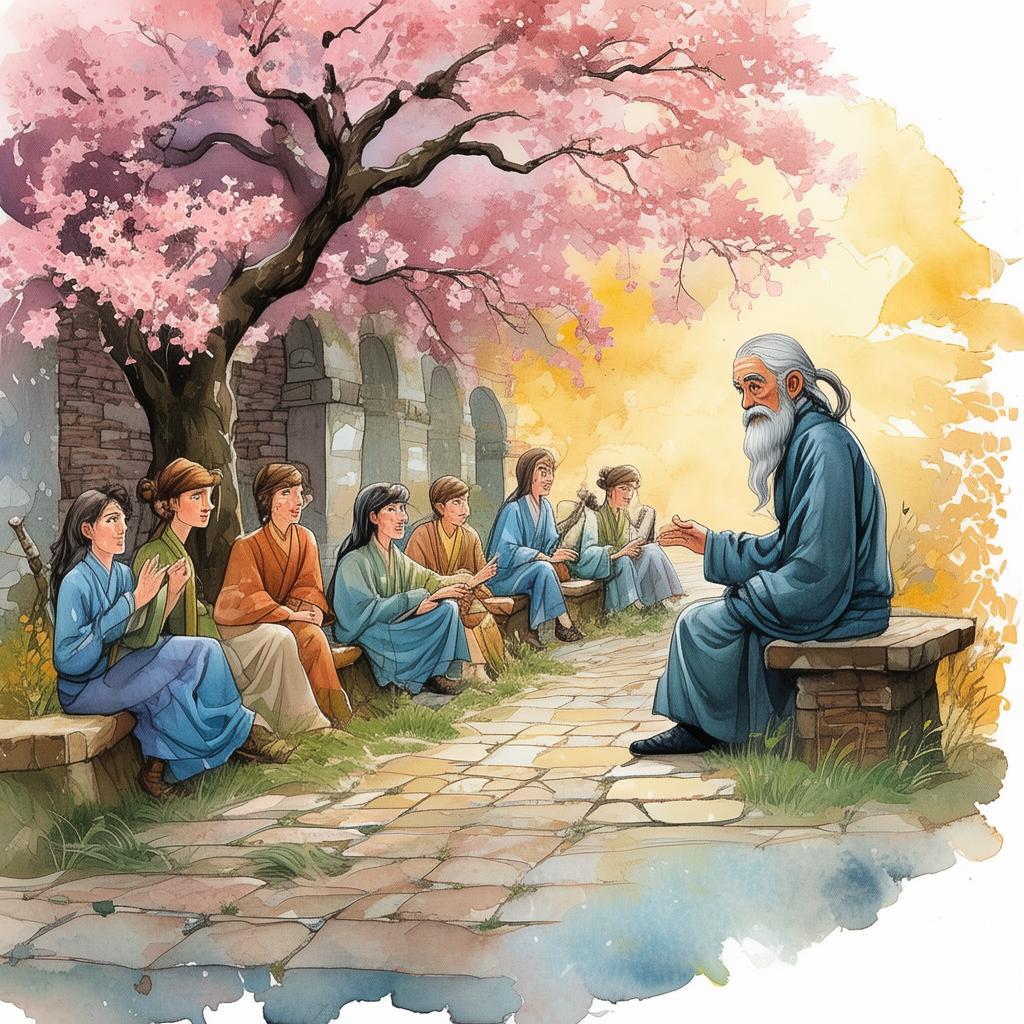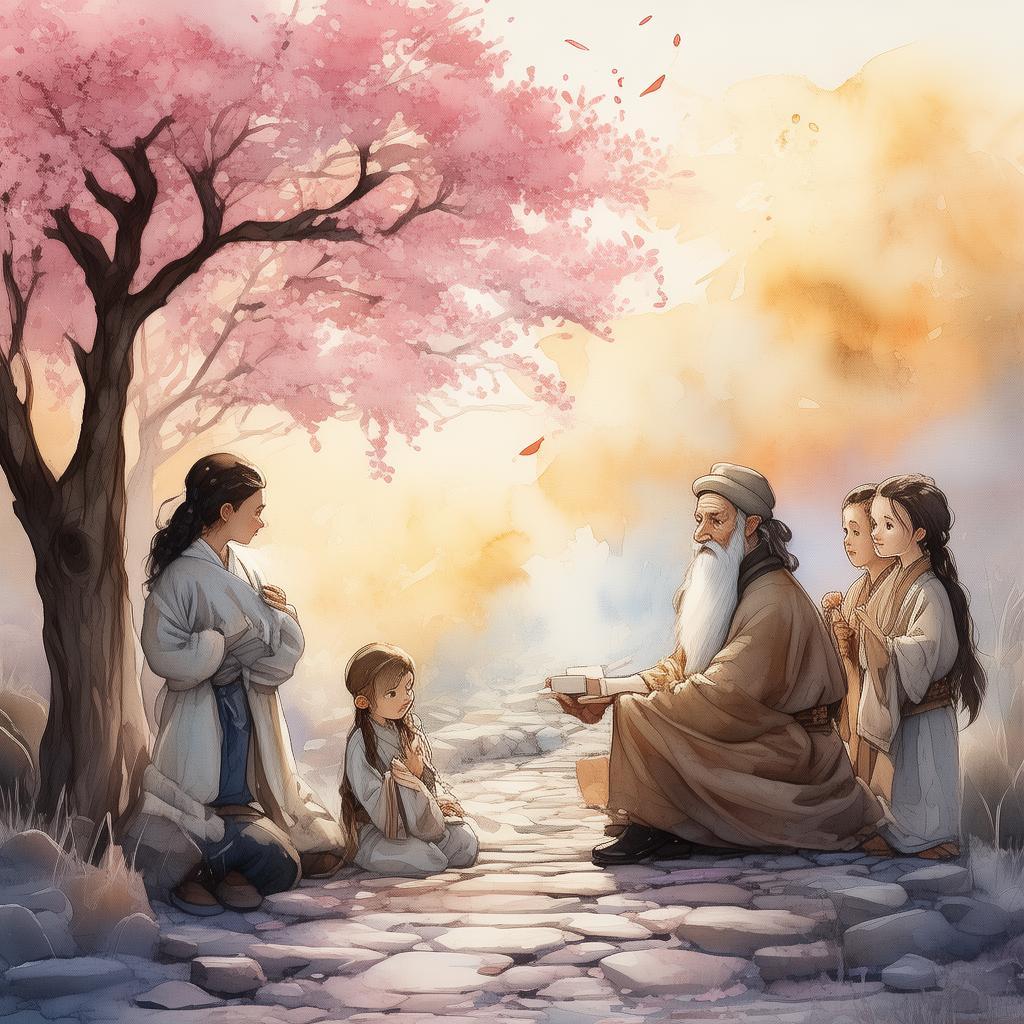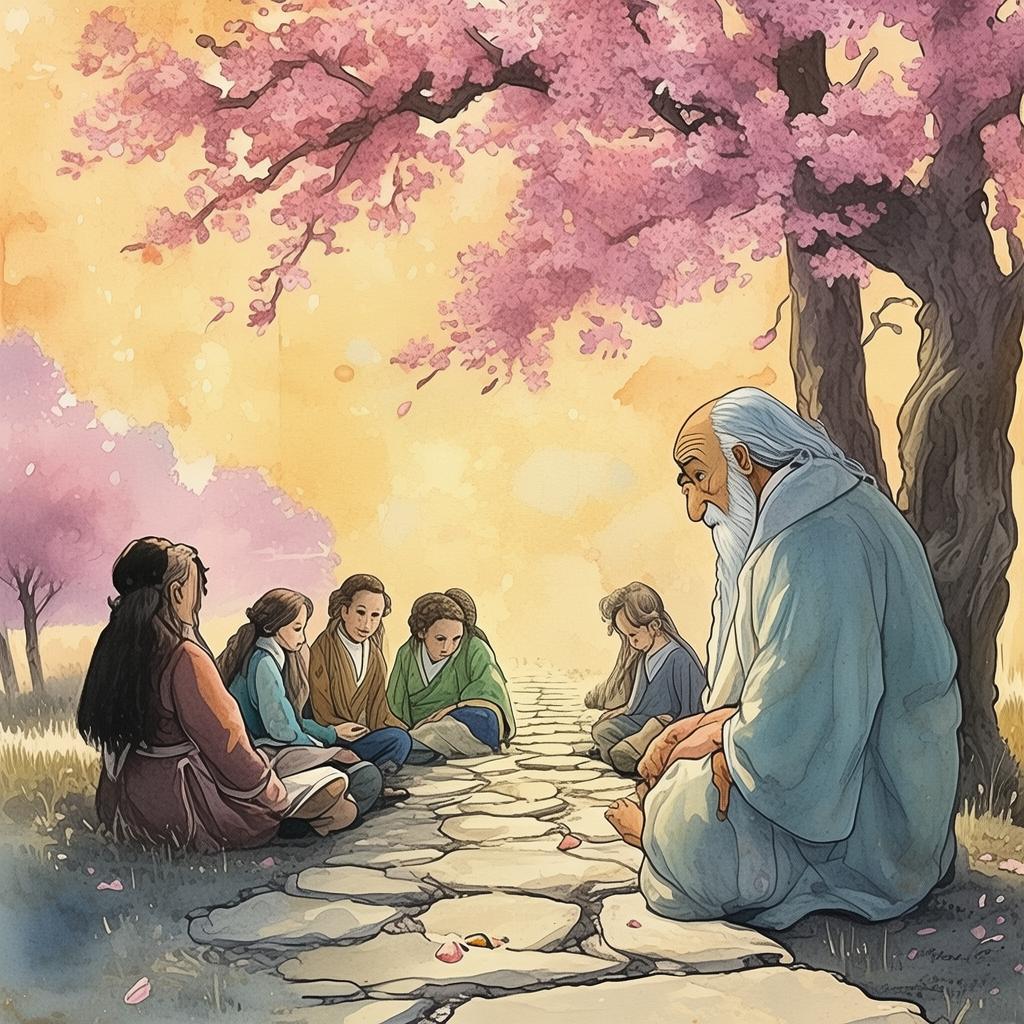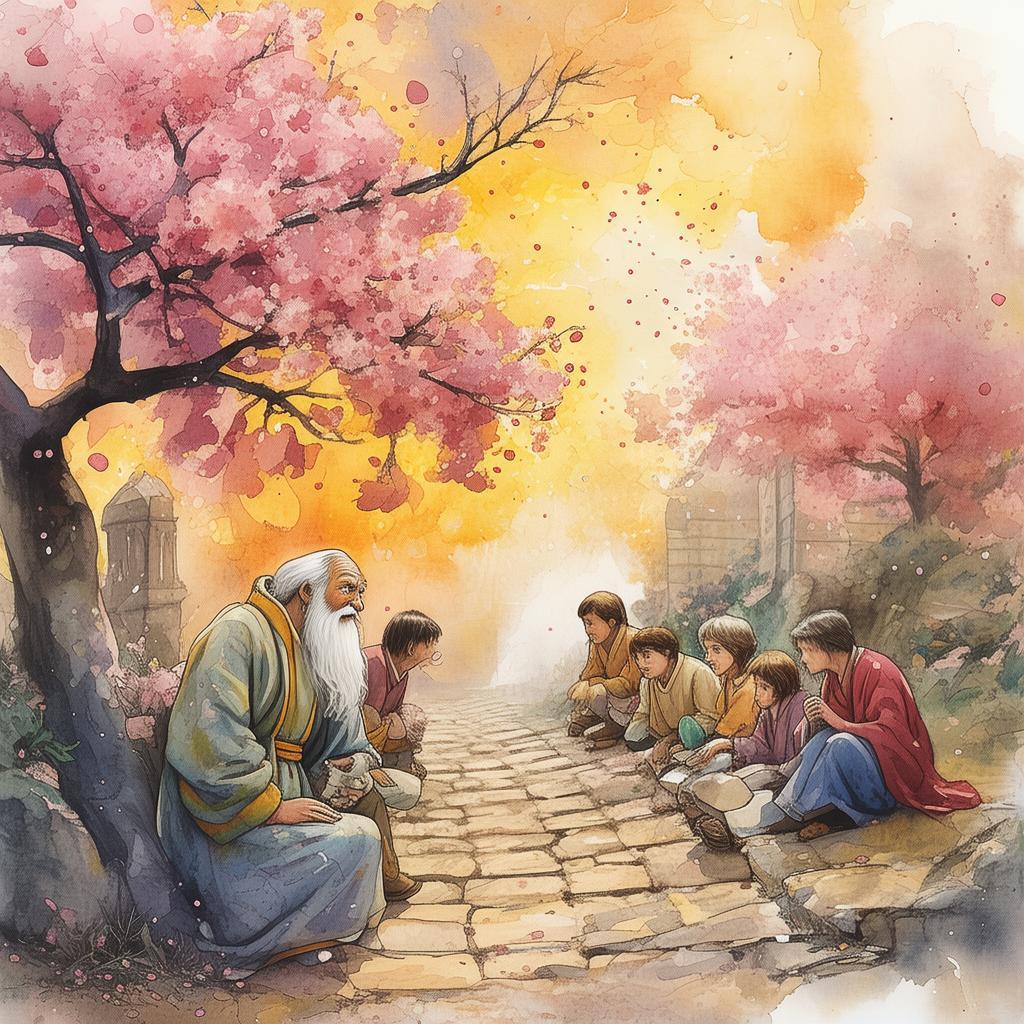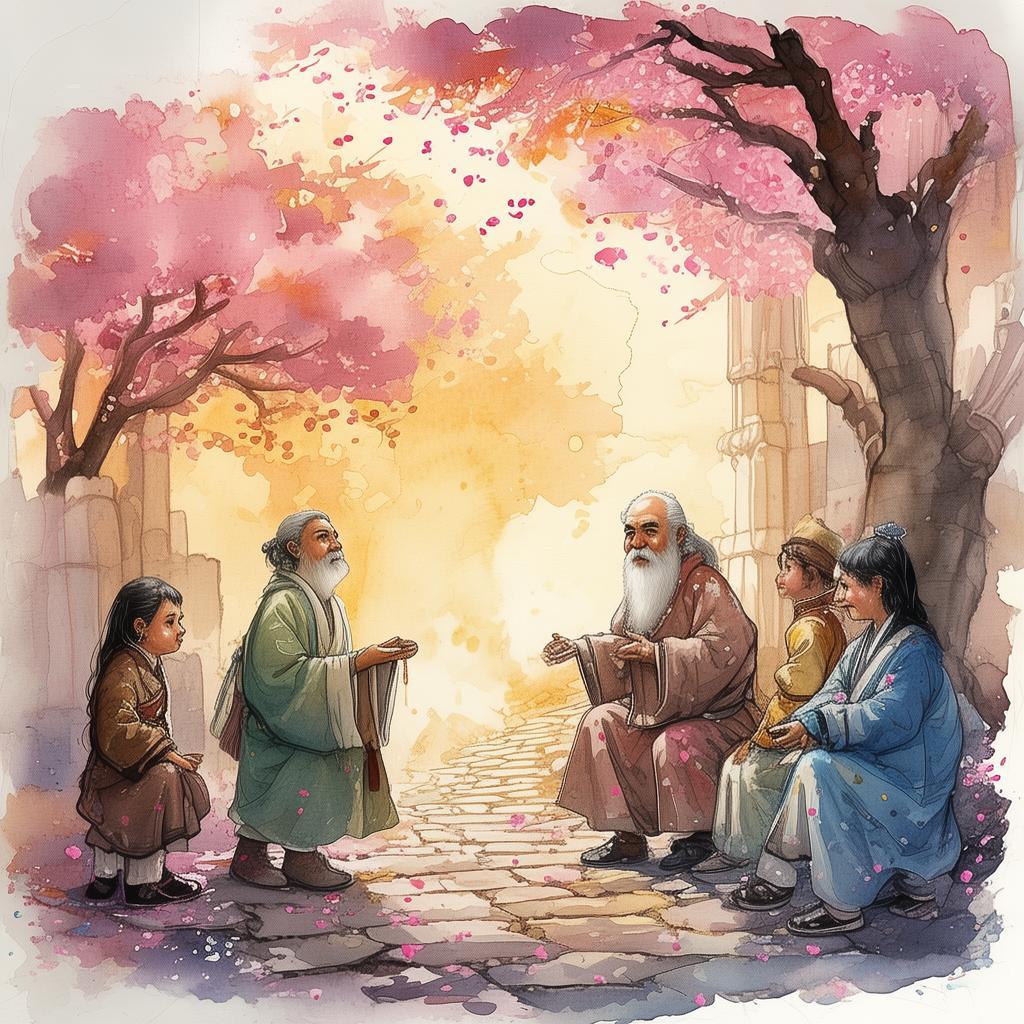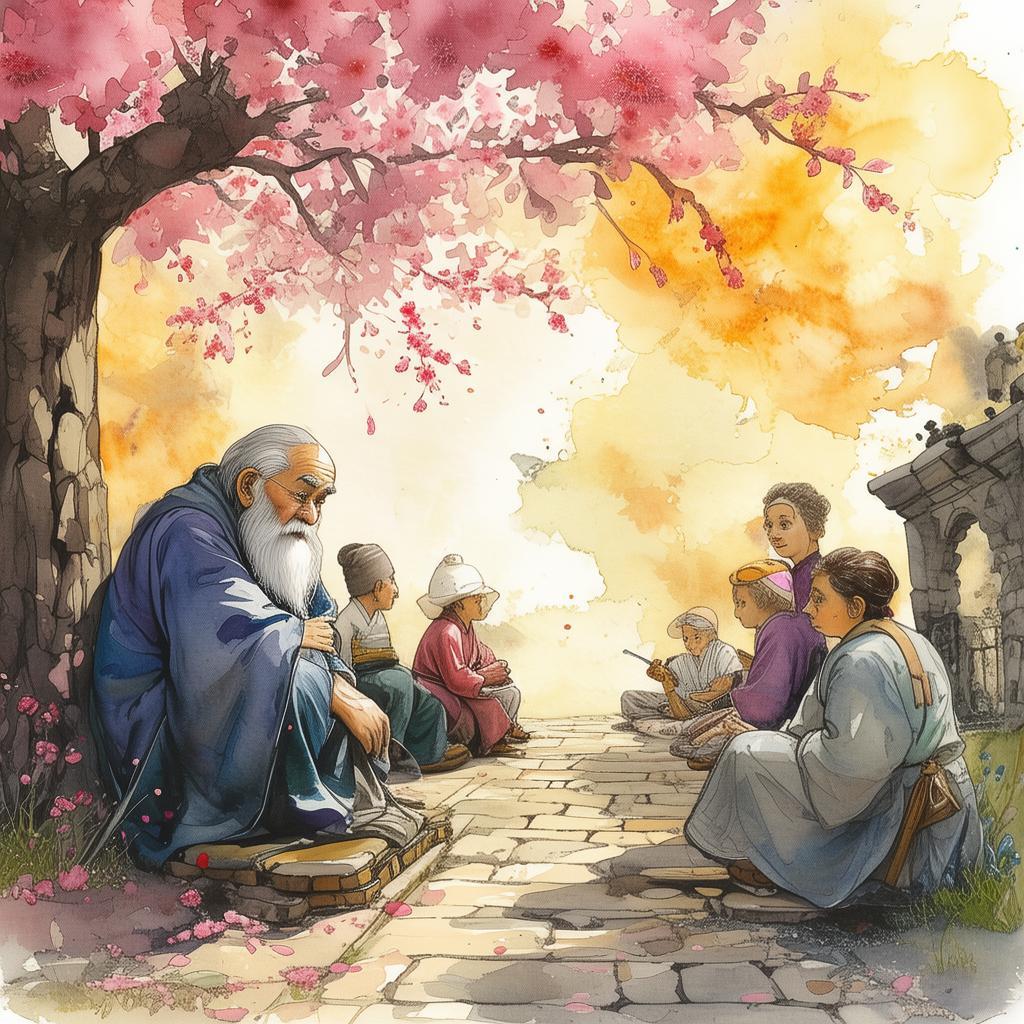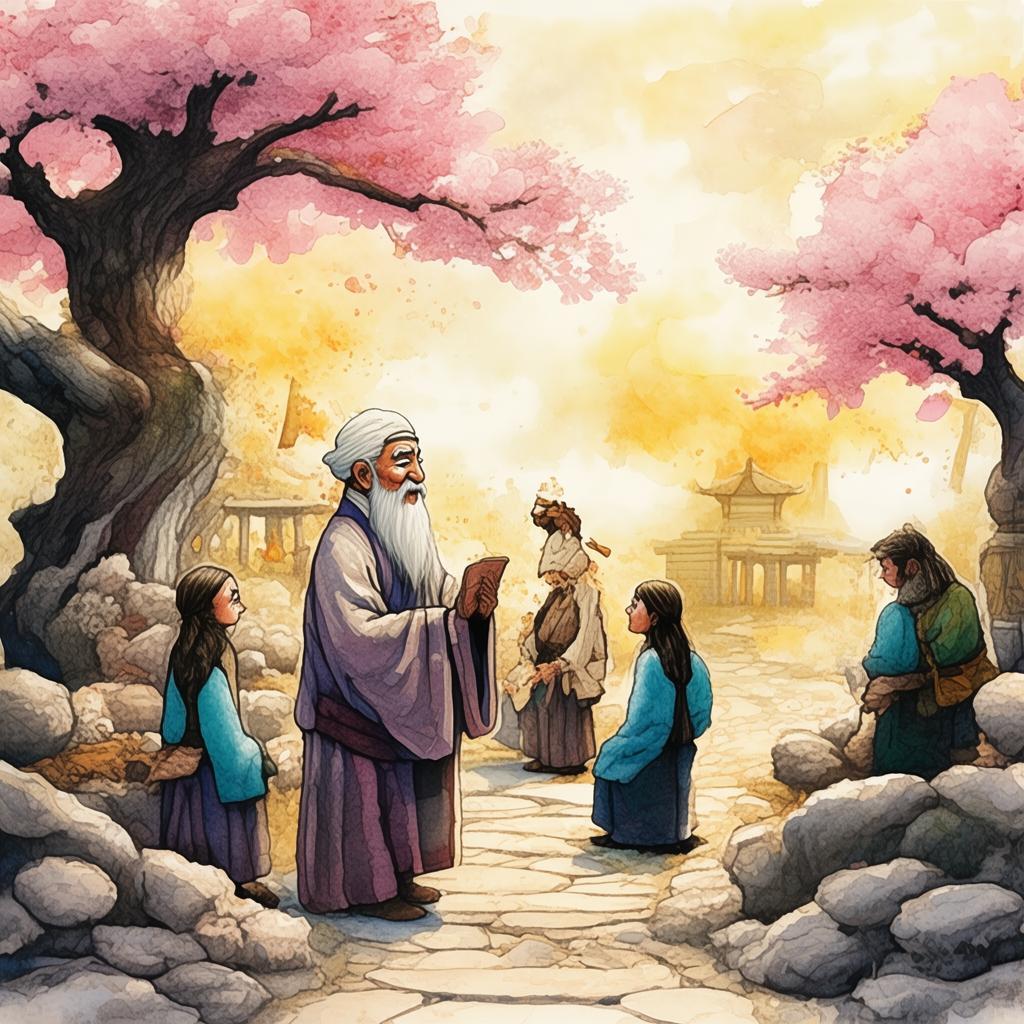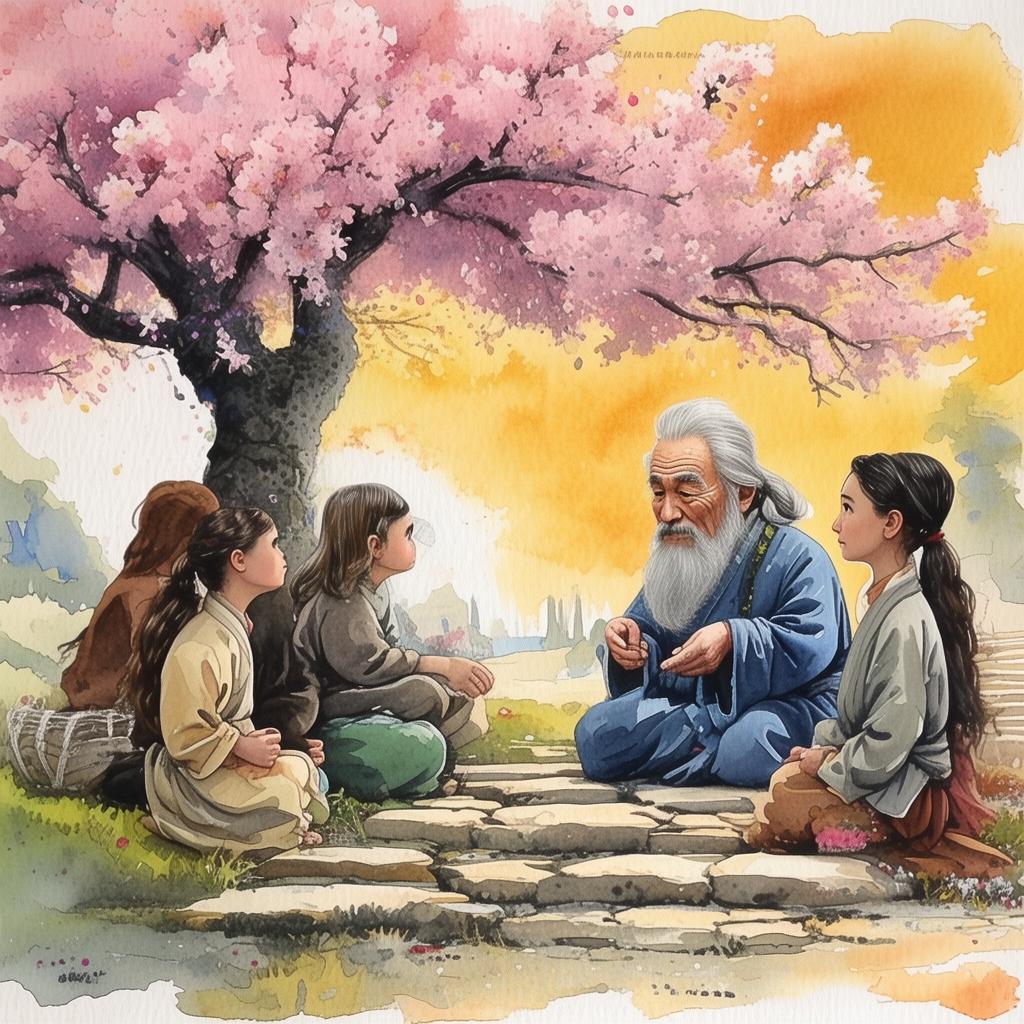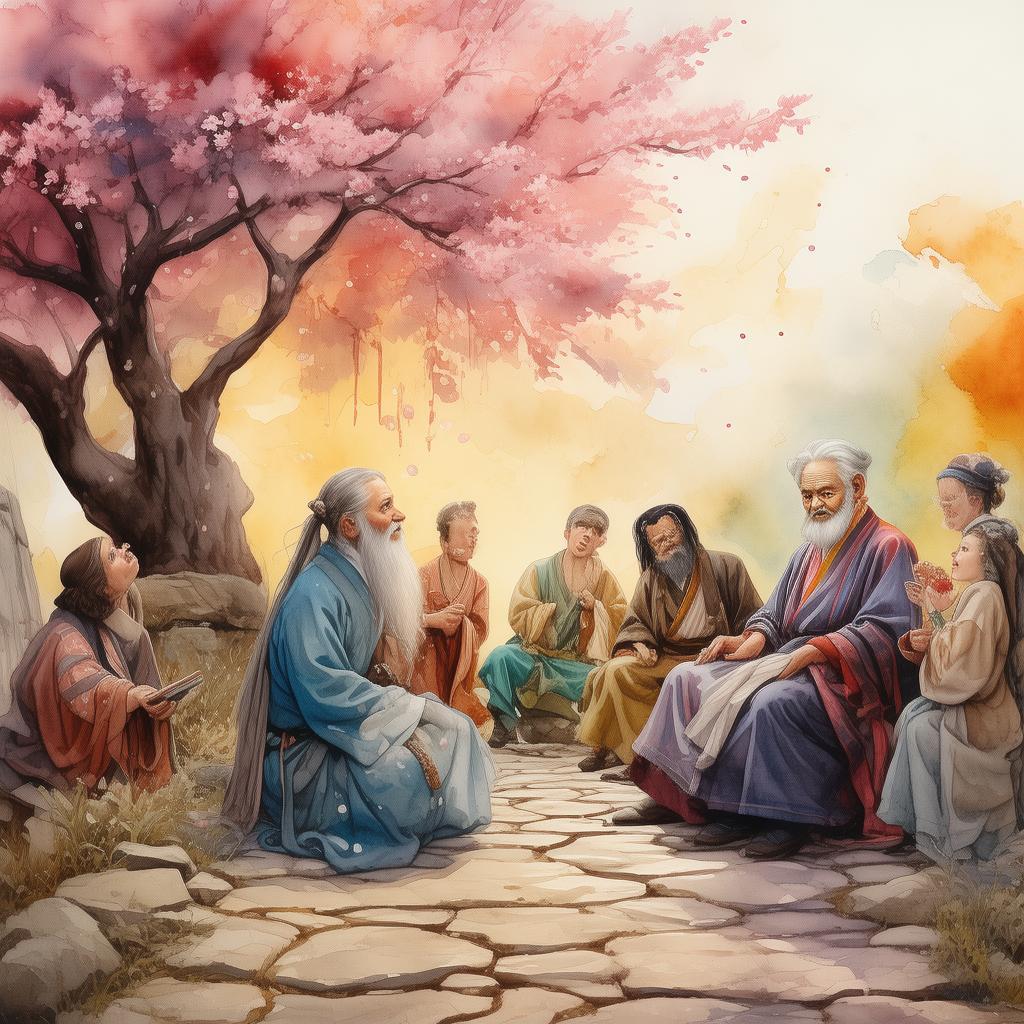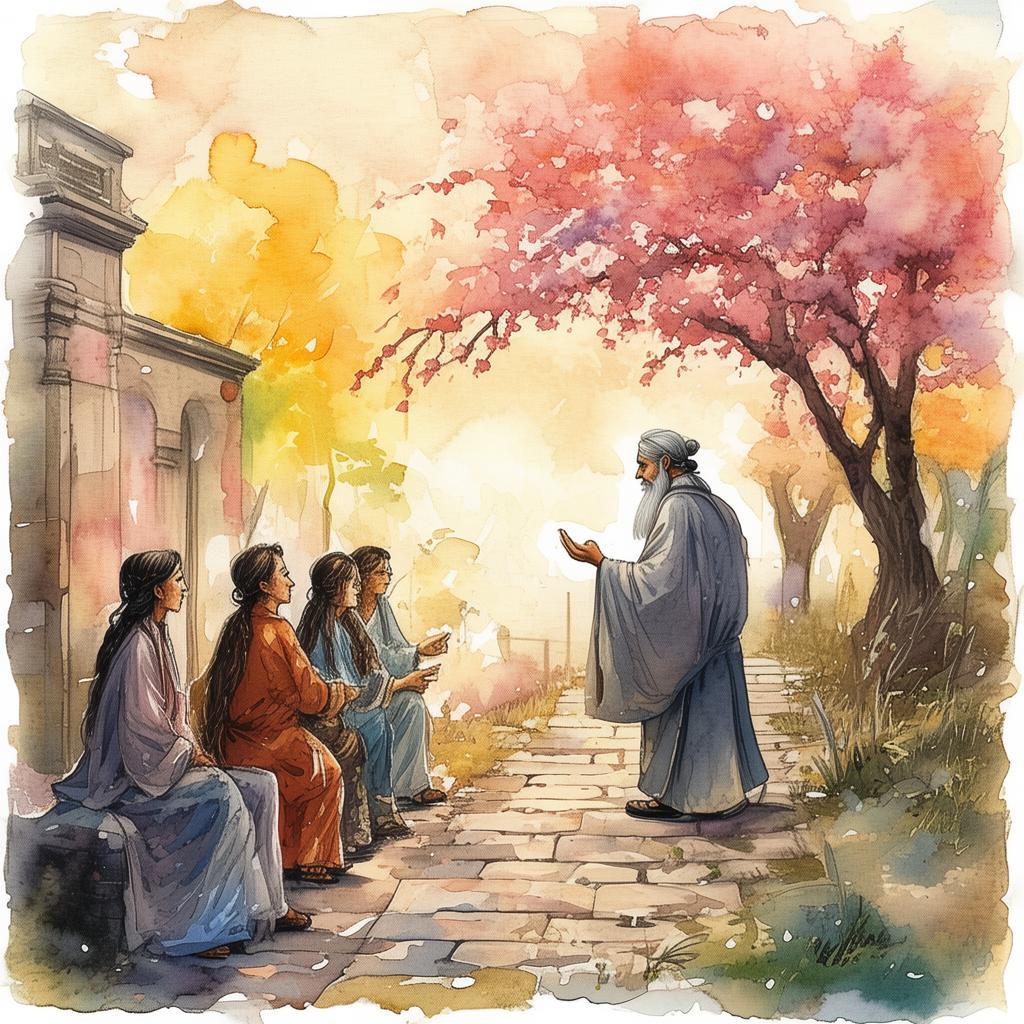The Melody of Loyalty: A Springtime Tale of the Silk Road
In the heart of ancient China, during the flourishing days of the Tang Dynasty, the Silk Road stood as a testament to the might and perseverance of the empire. It was a vast network of trade routes that spanned over 4,000 miles, connecting East and West, and carrying not just goods but also stories, music, and the essence of human spirit.
The story revolves around a young courier named Jing, whose life was dedicated to the imperial postal service. Jing was known for his swift and reliable delivery of messages, a talent that earned him the title of "Melody of the Road." His most cherished possession was a lute, crafted from the wood of the willow tree that his mentor had once gifted him, and it was said that the lute could carry the voice of the road, reaching the heart of anyone who listened.
One spring, as the cherry blossoms danced in the gentle breeze, Jing received a mission that would test his loyalty and his very life. The Emperor, a lover of the arts, had requested a rare manuscript from the great library of Samarkand, a city far to the west. Jing was the chosen courier, but the journey was fraught with peril. Bandits, treacherous terrain, and political intrigue awaited him at every turn.
The tale begins on a sunny morning when Jing set out with his lute, the manuscript wrapped securely in his satchel. The road was alive with the sounds of merchants bartering, caravans loading their goods, and the distant call of birds. Jing played a tune on his lute to keep his spirits high, and the melody seemed to resonate with the very essence of the Silk Road.
As he traveled through the desert, the lute's melody became Jing's guide. In the solitude of the sands, he played a tune that was both sorrowful and hopeful, reflecting the loneliness and the promise of a journey ahead. He met a group of travelers, a weaver, a physician, and a monk, each with a story of their own. They became Jing's companions, bound by the shared peril of the road and the quest for a common goal.
The journey was fraught with danger. They faced a bandit camp, where Jing's bravery and skill with the lute helped to calm the outlaws, leading to a peaceful resolution. In another encounter, a dispute over water supplies nearly turned into a violent confrontation, but it was Jing's quick thinking and a lute tune that defused the tension and preserved the harmony of the group.
One evening, as the sun dipped below the horizon, Jing found himself at a crossroads. The road ahead was shrouded in mystery, and the manuscript was crucial for the Emperor's plans. He played a melancholic tune on his lute, his heart heavy with doubt. It was then that the lute spoke back, its strings resonating with a sense of duty and loyalty.
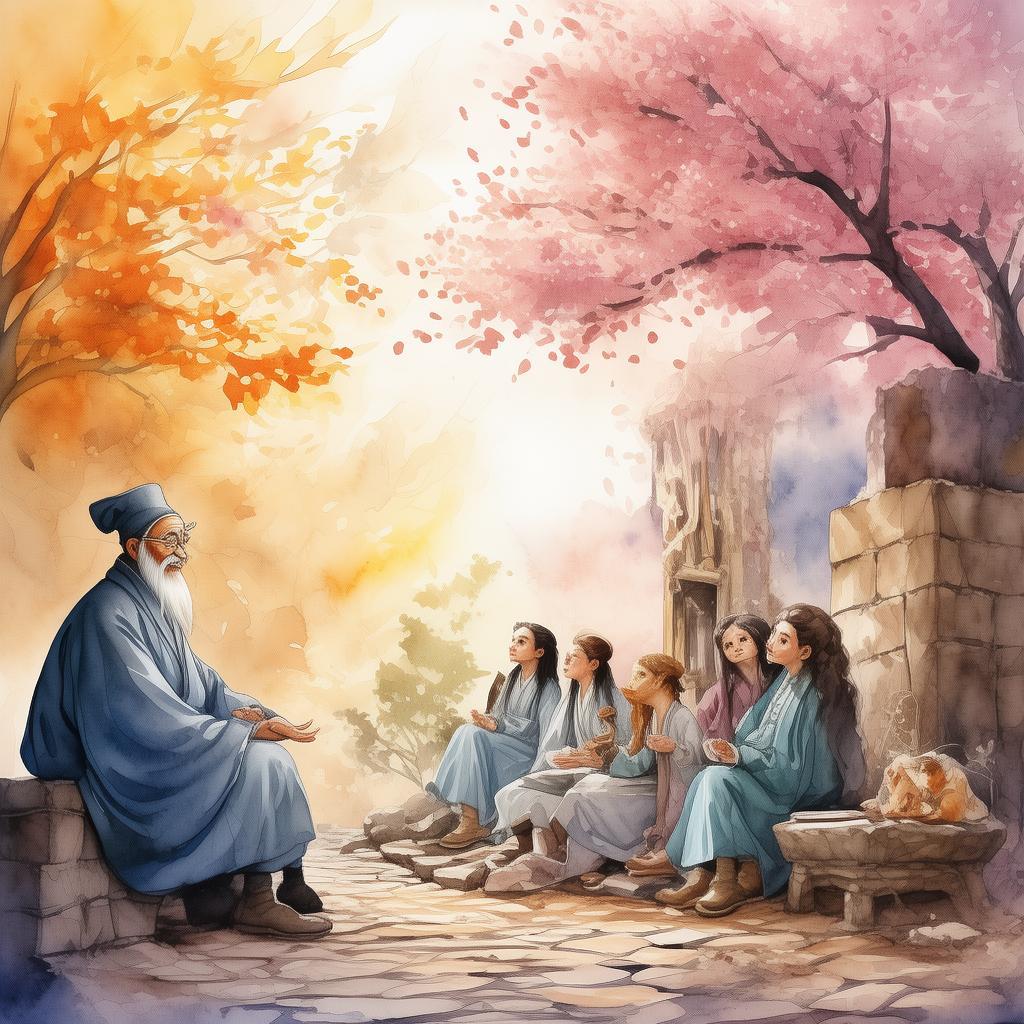
Jing decided to take the more arduous path, which led to a remote oasis. There, he encountered a hidden temple where a secret order of musicians had gathered. They performed a dance that mirrored the journey of the Silk Road, and it was here that Jing learned of the true purpose of the manuscript—it was a map to the source of the ancient melody that once unified the empires of the East and West.
Armed with this knowledge, Jing and his companions continued their journey, the lute's melody acting as a beacon. They crossed the mountains, fought off wolves, and braved a fierce storm, all the while guided by the lute's melody.
Finally, after months of perilous travel, Jing arrived in Samarkand. The manuscript was safely delivered, and the Emperor's plans were set in motion. Jing returned to the capital as a hero, but he had changed. The journey had tested his loyalty, his courage, and his heart.
The lute's melody, once a symbol of his journey, now resonated with a deeper meaning. It was the melody of loyalty, the song of a courier who had walked the Silk Road with unwavering commitment. The story of Jing and his lute became a legend, whispered from one end of the Silk Road to the other, a tale of a melody that bridged cultures and an enduring symbol of loyalty.
In the heart of the imperial court, Jing played the lute for the Emperor, whose eyes glistened with tears. The melody carried the voices of the Silk Road, of the weaver, the physician, and the monk, and of Jing himself. It was a melody of unity, of resilience, and of loyalty, a melody that would echo through the ages, a musical journey through time.
As the story ends, the cherry blossoms fall, a gentle reminder of the spring that began Jing's journey. The lute's melody lingers in the air, a testament to the power of loyalty and the enduring spirit of those who walk the road less traveled.
✨ Original Statement ✨
All articles published on this website (including but not limited to text, images, videos, and other content) are original or authorized for reposting and are protected by relevant laws. Without the explicit written permission of this website, no individual or organization may copy, modify, repost, or use the content for commercial purposes.
If you need to quote or cooperate, please contact this site for authorization. We reserve the right to pursue legal responsibility for any unauthorized use.
Hereby declared.
